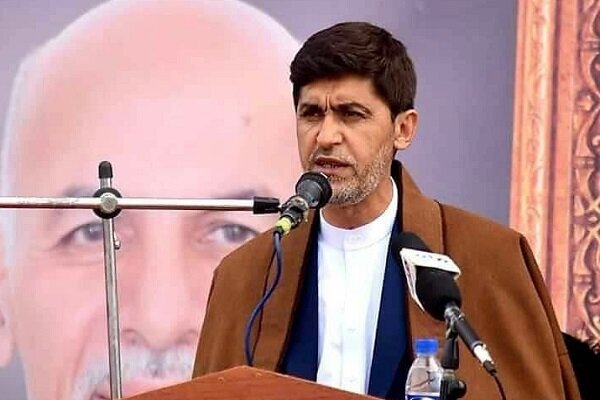We are back to square one: Afghan MP

TEHRAN – Noting that the path Americans are following in Afghanistan is wrong, an Afghan parliament representative says that Afghanistan is back to “square one” after two decades of a futile war.
“The U.S. war on Afghanistan has not had tangible results for the country's stability. After twenty years of U.S. presence in Afghanistan, we are back to square one,” Hayatullah Alami tells the Tehran Times.
“The Taliban has even been given facilities and their prisoners been released. The path that Americans are following is wrong,” Afghan politician adds.
The following is the text of the interview:
Q: How do you assess the level of security cooperation between Iran and Afghanistan as two neighboring countries?
A: Iran is a strong neighbor for Afghanistan, but security cooperation between the two countries is unfortunately not at the expected level. I think the people of Iran and Afghanistan expect more from their governments on security issues, especially in the fight against terrorism.
There are many opportunities ahead: religious, cultural ties and the long common borders, and the vast economic benefits that can be achieved if both countries make a decision to boost cooperation.
These opportunities need to be considered by both sides.
The most important challenge in the relationship between the two countries in the matter of security cooperation is linked to the Afghan government, which is strongly dependent on the United States of America. The United States considers Iran as an arch-enemy, and Afghanistan’s dependence on the United States is an obstacle to boost cooperation between the two countries.
Q: How do you see Iran's role in fighting terrorism and violence in Afghanistan?
A: Iran's role in the fight against terrorism is very prominent. Iran is one of the countries that has made the most sacrifices in the fight against terrorism. Iran's highest officials, including its president, prime minister and other influential figures, have been martyred by terrorists. Since the establishment of the Islamic Republic, Iran's slogan and approach were confronting terrorism, and we have witnessed this on the ground.
But regarding feeling inside Afghanistan, I should say that Iran is popular among Afghans due to its wise policy.
One of the main reasons why some other countries are so hated by Afghans is their meddling policies in Afghanistan's domestic affairs. They interfere in Afghanistan's internal affairs and support terrorism. Unlike these countries, Iran is not notorious in Afghanistan because it has not meddled in the country. The expectation of the Afghan people is that no country interfere in Afghanistan.
Q: What have been the consequences of the U.S. war in Afghanistan after two decades? Why is the United States negotiating with the Taliban today?
A: The U.S. war on Afghanistan has not had tangible results for the country's stability. After twenty years of U.S. presence in Afghanistan, we are back to square one.
A new political system has been established in Afghanistan and it had some advantages; however, the presence of the American troops in Afghanistan has intensified extremism and violence, and most importantly, the poverty and misery of the people have increased due to the wrong policy of the U.S. administration in Afghanistan.
The United States entered Afghanistan under the slogan of fighting terrorism and rooting out the Taliban and restoring security, but today the Afghan people are witnessing that none of the promises made by the United States have been fulfilled. In many cases, the process is reversed.
Q: What is your comment on some Arab regimes’ financial support for the Taliban and reinforcing extremism in Afghanistan?
A: Unfortunately, terrorism and extremism in Afghanistan have large financial backers, including some Arab countries that were active in Afghanistan in the 1980s, and today a lot of money is being injected into Afghanistan by Arab regimes, especially Saudi Arabia, to support extremist ideas.
The policy of these regimes is to wage sectarian and religious wars inside Afghanistan, of which we see many examples. The financial cost of this war is being paid from outside.
Saudi Arabia is one of the countries that has played a prominent role in sponsoring terrorism during the thirty years of civil war in Afghanistan, where the Taliban ruled for a while and kept the flames burning.
Q: What changes are likely to occur in Washington's foreign policy toward Afghanistan as the new administration takes office in the United States?
A: In my opinion, with the new American administration coming to power, as the advisor of the new government announced, Mr. Khalilzad's mission has been extended.
This means that U.S. policy in Afghanistan will not change. We believe that the Americans have chosen the wrong path in the negotiations with the Taliban, and this path will not lead Afghanistan to prosperity. Instead of restricting the Taliban, the Americans are unfortunately putting pressure on the Afghan government, giving the Taliban more legitimacy via giving concessions every day.
The Taliban has even been given facilities and their prisoners been released. The path that Americans are following is wrong.
Leave a Comment